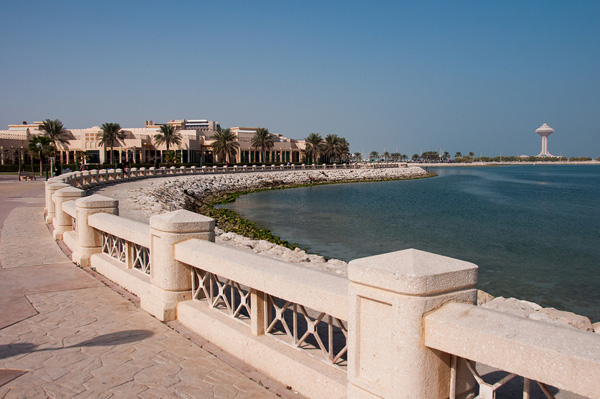10 Cultural Faux Pas to Avoid While Living in Saudi Arabia
Summary: If you've recently arrived in Saudi Arabia, here are 10 Cultural Faux Pas to avoid while living there.

Moving to a new country can be an exciting adventure, but it also comes with the challenge of adapting to a different culture. Saudi Arabia has a rich cultural heritage that is deeply rooted in the Islamic faith, and it is important for expats to be aware of local customs and traditions to avoid cultural faux pas. Here are 10 tips to help you navigate the cultural landscape of Saudi Arabia and show respect for its customs.
1. Dress Conservatively
One of the most important aspects of Saudi culture is conservative dress. Men should wear long trousers and shirts that cover their shoulders, while women are expected to wear an abaya, a long cloak, and a headscarf in public. It's not just about following the law; dressing conservatively is a sign of respect for the local culture and customs.
2. Understand Gender Segregation Norms
In Saudi Arabia, gender segregation is practiced in many public spaces, including schools, banks, and restaurants. As an expat, it's crucial to be aware of and respect these norms. For example, always look for the family section in restaurants if you're accompanied by women or mixed-gender groups.
3. Use Right Hand for Eating and Greetings
The left hand is considered unclean in many Middle Eastern cultures. Therefore, always use your right hand for eating and when shaking hands or passing objects to others. This simple gesture is a sign of cultural awareness and respect.
4. Observe Prayer Times
Islam is the state religion, and the call to prayer occurs five times a day. During these times, shops may close, and activities may pause. Be mindful of prayer times, and avoid scheduling meetings or expecting services during these periods.
5. Be Cautious with Photography
Always ask for permission before taking photos of people, especially women. In many cases, photographing government buildings, military installations, and palaces is prohibited and can lead to penalties.
6. Learn Basic Arabic Phrases
While English is widely spoken, learning basic Arabic phrases can go a long way in showing respect and building rapport with locals. Simple greetings like "As-salamu alaykum" (peace be upon you) can make a positive impression.
7. Avoid Public Displays of Affection
Public displays of affection are frowned upon in Saudi culture. It's important to keep physical contact with the opposite sex to a minimum in public spaces to respect local sensibilities.
8. Respect Ramadan Customs
During the holy month of Ramadan, Muslims fast from dawn until sunset. Even if you are not fasting, avoid eating, drinking, or smoking in public during daylight hours out of respect for those who are.
9. Accept Hospitality Graciously
Saudi culture is known for its hospitality. If you're invited to a Saudi home, it's polite to accept the invitation and partake in the offered food and drink, as refusing can be seen as disrespectful.
10. Be Mindful of Local Laws and Regulations
Saudi Arabia has strict laws that may be very different from those in your home country. Be sure to familiarize yourself with local laws, including those related to alcohol consumption, drug use, and social behavior, to avoid serious consequences.
We hope these tips help you navigate the cultural nuances of living in Saudi Arabia. Remember, being observant and respectful goes a long way in making your expat experience enriching and enjoyable. Share your experiences and seek advice on Expat Exchange's Saudi Arabia forum to connect with fellow expats.Expats Confess Their Cultural Faux Pas in Saudi Arabia
"In Saudi Arabia, it is important to remember to dress conservatively, obey local laws and customs, and to always defer to the wishes and decisions of the local host. Greeting should be done in a respectful and formal manner, with a shake of the hand for men and a small nod of the head for women. Refrain from physical contact with members of the opposite sex and avoid making any negative remarks about the Saudi Arabian government or Saudi customs. Additionally, eating, drinking, and smoking should only be done in private, and family relationships should be respected at all times," commented an expat living in Saudi Arabia.
About the Author
 Joshua Wood, LPC joined Expat Exchange in 2000 and serves as one of its Co-Presidents. He is also one of the Founders of Digital Nomad Exchange. Prior to Expat Exchange, Joshua worked for NBC Cable (MSNBC and CNBC
Primetime). Joshua has a BA from Syracuse and a Master's in Clinical and Counseling Psychology from Fairleigh Dickinson University. Mr. Wood is also a licensed counselor and psychotherapist.
Joshua Wood, LPC joined Expat Exchange in 2000 and serves as one of its Co-Presidents. He is also one of the Founders of Digital Nomad Exchange. Prior to Expat Exchange, Joshua worked for NBC Cable (MSNBC and CNBC
Primetime). Joshua has a BA from Syracuse and a Master's in Clinical and Counseling Psychology from Fairleigh Dickinson University. Mr. Wood is also a licensed counselor and psychotherapist.
Some of Joshua's articles include Pros and Cons of Living in Portugal, 10 Best Places to Live in Ireland and Pros and Cons of Living in Uruguay. Connect with Joshua on LinkedIn.
Additional Information:
- Saudi Arabia Guide
- Healthcare & Health Insurance in Saudi Arabia
- Members Talk about Healthcare & Health Insurance in Saudi Arabia
- Best Places to Live in Saudi Arabia
- Real Estate in Saudi Arabia
- Guide to Real Estate in Saudi Arabia
- Pros & Cons of Living in Saudi Arabia
- Cost of Living in Saudi Arabia
- Buying a Home in Saudi Arabia
- Pros and Cons of Living in Saudi Arabia
- Chikungunya Disease in Saudi Arabia
- How to Rent a Home in Saudi Arabia
- Pros and Cons of Living in Saudi Arabia 2025
- 2025 Guide to Moving to Saudi Arabia



